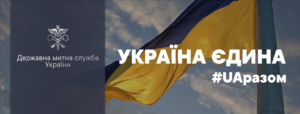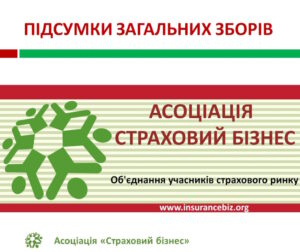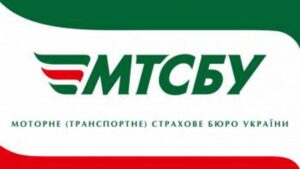
The Parliamentary Committee on Human Rights, De-occupation and Reintegration of the Temporarily Occupied Territories of Ukraine, National Minorities and Interethnic Relations recommends that the Verkhovna Rada adopt in the first reading the presidential draft law on multiple citizenship (No. 11469).
According to the press service of the Verkhovna Rada’s apparatus, this decision was made at a meeting of the committee on Tuesday.
As previously reported, President of Ukraine Volodymyr Zelenskyy submitted draft law No. 11469 “On Amendments to Certain Laws of Ukraine on Ensuring the Exercise of the Right to Acquire and Retain Ukrainian Citizenship” to the Verkhovna Rada.
According to the explanatory note to the draft law, the goals and objectives of the draft law are to update the legal regulation of Ukrainian citizenship, taking into account the need to ensure national security and national interests of Ukraine.
The draft law also simplifies the procedure for acquiring Ukrainian citizenship and improves the regulation of the legal status of foreigners and stateless persons who, in accordance with the procedure established by the legislation of Ukraine, are performing/have performed military service under contract in the Armed Forces of Ukraine, the State Special Transport Service, the National Guard of Ukraine or are one of the spouses of such a person or a child of such a person.
It is noted that the adoption of this draft law will expand the opportunities for certain categories of foreigners and stateless persons to acquire Ukrainian citizenship. At the same time, multiple citizenship will not be introduced for people with Russian citizenship or citizens of states that do not recognize the territorial integrity and sovereignty of Ukraine.

The Laws of Ukraine No. 3853-IX and No. 3854-IX of 16.07.2024, from 00:00 hrs. July 27, which provide for the introduction of exemption from duty and VAT on imports into Ukraine: power generating equipment, equipment for wind and solar generation, batteries (except for low capacity batteries), reports the State Customs Service of Ukraine on Friday.
The Service separately draws attention to the fact that such important goods for the population as: electric generators, inverters, lithium-ion batteries and charging stations on their basis, as well as solar panels for repair and/or replacement from damage and expansion of the capacity of existing solar power plants fall under preferential import to Ukraine.
Also in the department emphasize that the list of goods that are exempt from customs duties on imports includes equipment for the manufacture of means of countering technical intelligence and/or repair of mechanized demining machines, and such defense equipment as means of radio-electronic means of detection and countering unmanned aerial vehicles.
“The amendments provide for the period of martial law in Ukraine exemption from customs duties for goods imported for energy security, including those transported (forwarded) to the customs territory of Ukraine in international mail and express shipments, for free circulation and classified under the following codes according to the UKT FEA: 8406 (except 8406 10 00 00), 8410 (only hydraulic turbines and their parts), 8483 40 21 00, 8502 20 40 90, 8502 20 60 90, 8502 20 80 90, 8411 (except turboprop and turbojet engines and their parts), 8501 64 00 00 00 00, 8504 40 84 00 (except inverter welding machines), 8504 40 88 00 00 (except inverter welding machines), 8504 40 90 00 00 (except inverter welding machines), 8507 60 00 00 (except energy storage units of less than 300 watts AC and/or DC and individual lithium-ion cells of less than 200 Ah capacity), 8541 43 00 00 00, 8537 (except for 8537 10 98 10), 8503 00 99 00 (only for wind power electric generator sets), components for the organization of own production and repair in Ukraine of mechanized demining machines, classified in commodity positions 8427, 8430, 8479 under the UKT FEA, as well as for the manufacture by enterprises of Ukraine active means of countering technical intelligence, classified in commodity positions 8517, 8525, 8543 under the UKT FEA“, – specified in the State Customs Service”, – specified in the State Customs Service.

Ukrainian President Volodymyr Zelenskyy, before the IMF Board of Directors made a positive decision on the allocation of $2.2 billion to Ukraine for the fifth tranche under the EFF extended financing program, signed the law on resetting the Bureau of Economic Security (#3840-IX), the adoption of which was one of the structural beacons of the program.
Information about the signing of the document by the head of state is posted on the website of the Verkhovna Rada.
“An important step forward was the adoption last week of the law on reforming the Bureau of Economic Security of Ukraine. It is necessary to quickly and decisively implement this law”, – said the head of the mission of the International monetary Fund (IMF) in Ukraine Gavin Gray at a press conference on Friday evening after the allocation of the tranche to Ukraine.
As reported, the Verkhovna Rada on June 20 by 239 votes with the required minimum of 226 votes adopted the law on the reset of the BEB. “The text is agreed with partners. With independent selection of the new head of the BEB, recertification and personnel selection. With the participation of foreign experts and Ukrainian business. It could have been better, but already well done,” – commented on the adoption of the first Deputy head of the relevant Committee of the Rada Yaroslav Zheleznyak.
According to him, according to the document, the new head of the BEB is selected by a commission of six members, half of whom are international experts with the right to a casting vote. Re-certification is carried out by a commission of six people each from the newly elected BEB director and from international partners, but at the suggestion of the Ukrainian business community. In addition, a Personnel Commission created according to the same scheme will work for the next three years.
“Guaranteed independence of the BEB director at the level of NABU/SAP/NAPK. And many more important changes about the independence of the institution. It is always possible more and better, but in general very ok”, – summarized Zheleznyak.
BEB reboot, IMF, LAW, ZELENSKY

The Association “Insurance Business” (ASB) appealed to the deputies of the Verkhovna Rada with a request to postpone the deadline for bringing the activities of insurance companies in line with the requirements of the law “On Insurance”, according to the information of the association. According to the new version of the law “On Insurance” adopted on November 18, 2021, insurers must bring their activities in line with its norms until July 1 this year
“We have prepared to the members of Parliament a very reasonable proposal to postpone this deadline to January 1, 2026,” – said the general director of the ASB Vyacheslav Chernyakhovsky.
He pointed out that during the preparation and adoption of the law it was planned that all the changes stipulated by it would be introduced under normal conditions of a relatively stable political and economic situation. But three months after its adoption, Russia’s full-scale military aggression began.
“It is clear that such cardinal changes are impossible in the new conditions of war and the struggle of the whole country with the biggest crisis in its existence,” he emphasized.
In support of this, Chernyakhovsky cites the following facts, in particular, the fact that the vast majority of NBU regulations were adopted in the last decade of December 2023, of which 10 NPAs have an ultra-high level of influence on all business processes of insurers. The consequence of these changes in legislation and regulatory framework is the need to update all internal documents of insurance companies (more than 100 documents with a total volume of more than 1 thousand pages), development of new insurance terms and conditions instead of insurance rules, forms for all insurance contracts, new software, etc.
“Based on this, insurers actually do not have the technical and physical ability to implement all these cardinal changes for the first half of 2024, which also accounts for the compilation and submission of all annual reports to all government agencies, the audit of financial statements, owners’ meetings, etc.” – is noted in the report
As confirmation of the data of the survey conducted by three insurance associations (ASB, LSOU, NASU) in April 2024 on readiness for the new norms of the law, which showed that out of 59 insurance companies that participated in the survey (61% of the total number of companies in the market, which own 86% of the total amount of premiums), only 20% believed that they will be fully ready to complete the necessary modernization of their activities before the date of entry into force of the requirements of the new law.
The Law “On Insurance” also introduces new capital requirements: the minimum amount of which is raised to UAH 32 mln. or UAH 48 mln. depending on the classes of insurance activities and regardless of the size of business and liabilities of the insurer, which negatively affects primarily insurers with Ukrainian capital, the report says.
“Such requirements put in unequal conditions small (mainly with Ukrainian owners) and large insurance companies. It is especially difficult to fulfill them to regional insurers, in particular, working in the regions most affected by Russian aggression: Zaporizhzhya, Kharkiv, Chernihiv and Odessa regions”, is noted in the message.

The draft law No. 10346 on state regulation of production and circulation of ethyl alcohol, alcohol distillates, bioethanol, alcoholic beverages, tobacco products, tobacco raw materials, liquids used in electronic cigarettes, and fuel adopted by the Parliament provides for a number of exemptions for craft products.
This was announced by Ivan Marchuk, Chairman of the Subcommittee on State-Business Interaction and Investment of the Verkhovna Rada Committee on Economic Development.
“For the first time in more than 30 years of our independence, we have jointly structured legislation designed to lay down the most comfortable and unified principles for the development of the Big (small) Craft Four – small winemakers, small distillers, small honey producers and small brewers,” he wrote on Facebook.
Marchuk called the main elements of the “craft revolution” the permission for small brewers to produce 1 million liters and at the same time have a declaration instead of the burdensome and costly certification of production.
For all craft producers, the rules for obtaining a license in electronic form within 10 days and reporting on production and turnover once a year were unified and re-enforced;
At the same time, fines for failure to submit or late submission of reports with inaccurate information on production and turnover volumes, etc. were reduced by 10 times.
“Of course, there is no limit to improvement, we will continue to improve the legislation for SMEs. We have already agreed to work on the possibility for small winemakers to produce semi-sparkling wines “petnats” under a “small license” and other useful benefits, which will be discussed later,” the MP summarized.

The Motor (Transport) Insurance Bureau of Ukraine (MTSBU) will hold the first session of the online course “Fundamentals of the New Law on CMTPL Insurance” on May 31 at 10:00, according to the Bureau’s Facebook page.
The session will be conducted by Roman Romensky, Head of the MTSBU Legal Department, who will talk about the basic principles and procedure for concluding insurance contracts in accordance with the basics of the new law (Section I-II of the draft law).
It is specified that participants do not need to register, it is enough to follow the YouTube live link https://www.youtube.com/live/hIQEzWFqQqc.
In connection with the adoption on May 21, 2024 by the Verkhovna Rada of the draft law “On Compulsory Insurance of Civil Liability of Owners of Inland Motor Vehicles” will hold a familiarization course on the main provisions of the bill, according to the website of the Bureau.
The familiarization course will consist of four sessions (by sections of the draft law), which will be held on the official YouTube channel of the MTSBU on Fridays at 10:00, lasting 1 hour 30 minutes, of which 30 minutes will be allocated for answering questions.
The tentative plan of the lectures is as follows: Session 1: Basic fundamentals of the New Law on CMTPL insurance and the procedure for concluding insurance contracts (І-ІІІ section of the draft law), Session 2-3: Settlement of insurance claims and the procedure for making payments (III section of the draft law), Session 4: Updating the functional work of the MTSBU and the basic principles of insurance companies’ membership in the Bureau (IV section of the draft law).